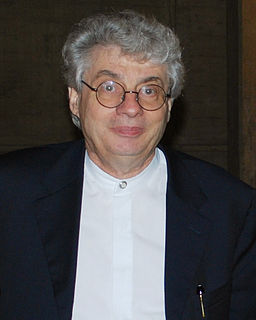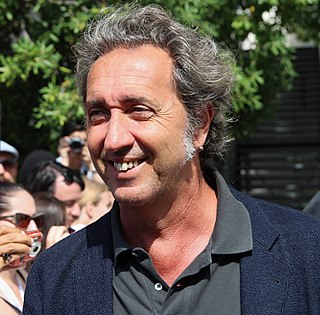A Quote by Mircea Eliade
When the sacred manifests itself in any hierophany, there is not only a break in the homogeneity of space; there is also a revelation of an absolute reality, opposed to the nonreality of the vast surrounding expanse. The manifestation of the sacred ontologically founds the world. In the homogenous and infinite expanse, in which no point of reference is possible and hence no orientation can be established, the hierophany reveals an absolute fixed point, a center.
Related Quotes
The first gesture of an architect is to draw a perimeter; in other words, to separate the microclimate from the macro space outside. This in itself is a sacred act. Architecture in itself conveys this idea of limiting space. It's a limit between the finite and the infinite. From this point of view, all architecture is sacred.
To have humility is to experience reality, not in relation to ourselves, but in its sacred independence. It is to see, judge, and act from the point of rest in ourselves. Then, how much disappears, and all that remains falls into place. In the point of rest at the center of our being, we encounter a world where all things are at rest in the same way. Then a tree becomes a mystery, a cloud a revelation, each man a cosmos of whose riches we can only catch glimpses. The life of simplicity is simple, but it opens to us a book in which we never get beyond the first syllable.
There are similarities between absolute power and absolute faith: a demand for absolute obedience, a readiness to attempt the impossible, a bias for simple solutionsto cut the knot rather than unravel it, the viewing of compromise as surrender. Both absolute power and absolute faith are instruments of dehumanization. Hence, absolute faith corrupts as absolutely as absolute power.
Meditation is the only way to overcome fear. There is no other way. Why does meditation help us overcome fear? In meditation we identify ourselves with the vast, with the Absolute. When we are afraid of someone or something, it is because we do not feel that particular person or thing is a part of us. When we have established conscious oneness with the Absolute, with the Infinite Vast, the everything there is part of us. And how can we be afraid of ourselves?
When we hit a nail with a hammer, the whole of the shock received by the large head of the nail passes into the point without any of it being lost, although it is only a point. If the hammer and the head of the nail were infinitely big it would be just the same. The point of the nail would transmit this infinite shock at the point to which it was applied. Extreme affliction, which means physical pain, distress of soul and social degradation, all at the same time, constitutes the nail. The point is applied at the very center of the soul, whose head is all necessity, spreading throughout space and time.
At the center of our being is a point of nothingness which is untouched by illusion, a point of pure truth, a point or spark which belongs entirely to God, which is never at our disposal, from which God disposes of our life, which is inaccessable to the fantasies of our own mind or the brutalities of our own will. This little point of nothingness and of absolute poverty is the pure glory of God in us.







































